The Type 2 Diabetes Mellitus (T2DM) medication, Ozempic, has been at the forefront of public interest over the past few months. It seems that many public figures have given the drug a try, regardless of whether or not they are living with diabetes. This brings a few questions to the forefront of clinical practice:
- Should we be recommending Ozempic to our patients?
- In which situations is Ozempic an appropriate treatment?
- When should we avoid recommending Ozempic?
In the context of eating disorder treatment, it is important for us as clinicians to have a clear understanding of the purpose, mechanisms, and functions of Ozempic so we can clearly communicate the facts to our patients. While we cannot control what information our patients read online, we can ensure we are informed ourselves and provide our patients with the proper, evidence-based information on semaglutide injections. In this article, we will discuss the ins and outs of Ozempic and other semaglutide injections and their implications on eating disorder recovery and treatment.
What is Ozempic?
Ozempic is a once-weekly subcutaneous injection containing the glucagon-like peptide-1 (GLP-1) analogue semaglutide. It is involved in a handful of mechanisms in the body including activation of GLP-1 receptors, augmented glucose-dependent insulin secretion, inhibition of glucagon release, and suppressed hepatic gluconeogenesis. These mechanisms result in reduced fasting and postprandial glucose levels. In randomized control trials, the treatment demonstrated superior and clinically relevant glycaemic control and weight loss compared with the placebo and active comparators in a broad range of subjects with Type 2 Diabetes Mellitus (T2DM) as an add-on to various oral treatments for glycaemic control.
Ozempic is not the only drug of its kind. Another popular brand with a semaglutide injection on the market is Wegovy. Although the two treatments are similar, they are approved for different uses by Health Canada:
As of November 23, 2021 Wegovy is approved by Health Canada for weight loss among those living with obesity
As of February 22, 2018 Ozempic is approved by Health Canada for Type 2 Diabetes treatment
Weight loss efficacy
The implication that Ozempic can lead to weight loss holds some truth, but with some important considerations. Semaglutide injections are found to reduce appetite, which may lead to fewer calories ingested, possibly leading to weight loss in some individuals. It should be noted, however, that this weight loss is not as extreme as the loss seen in some celebrities as of recent. The public seems to believe that Ozempic and Wegovy will simply “melt away the fat” – this is untrue and misinformed. The only known mechanism by which a semaglutide injection can lead to weight loss is through appetite suppression.
Implications for eating disorder recovery and treatment
As clinicians seeing patients who exhibit symptoms of disordered eating, it is important to have a conversation about how we may approach the use of (or curiosity about) semaglutide injections for weight loss. We know that weight loss drugs are likely not an appropriate treatment for an individual living with an eating disorder. If we see a patient taking Ozempic for weight loss, it should be considered an ED symptom and treated as one. We can approach Ozempic use or interest as a compensatory behaviour similar to laxative abuse, purging, over-exercising, or diet pill use. In some cases, we may be unable to stop our patients from taking Ozempic for weight loss; however, we can keep our lines of communication open with non-judgemental, compassionate support.
If you are a Canadian clinician seeking support on an Ozempic case, you can book a free case consultation with us below.


